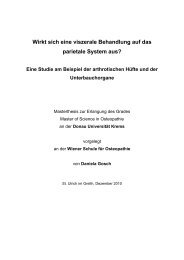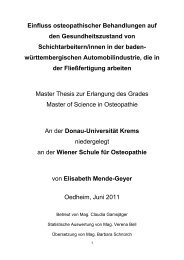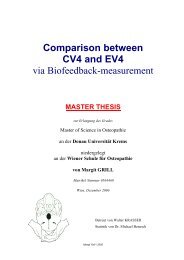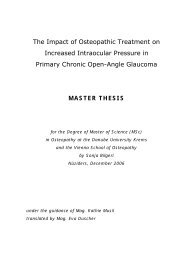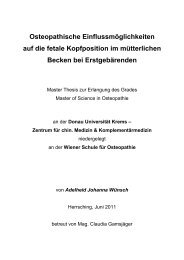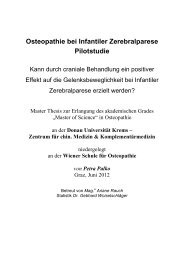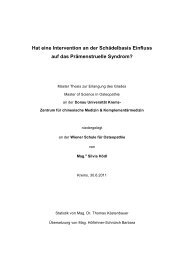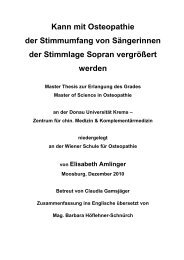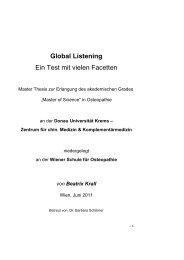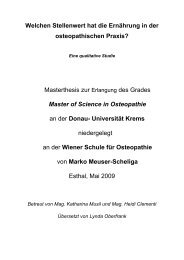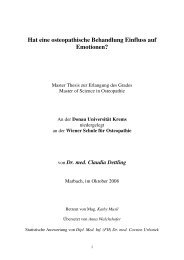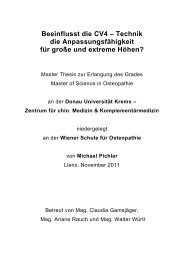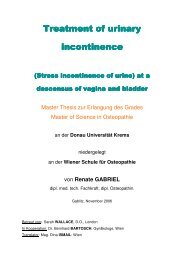Risch Andreas.pdf - Osteopathic Research
Risch Andreas.pdf - Osteopathic Research
Risch Andreas.pdf - Osteopathic Research
Sie wollen auch ein ePaper? Erhöhen Sie die Reichweite Ihrer Titel.
YUMPU macht aus Druck-PDFs automatisch weboptimierte ePaper, die Google liebt.
These metaphors for health seem to express a complex cognitive-affective language<br />
filled with metaphors of interoceptive sensory experiences.<br />
Together with the sensory experiences of the visual, tactile/haptic/thermal and<br />
acoustic categories, they make a combined statement of interoceptive and<br />
exteroceptive sensory experience and characterize health as a personal and<br />
professional experience. Health is becoming a metaphor itself for the values<br />
osteopathy stands for revealing a predominantly salutogenetic paradigm. Health is<br />
not defined by the absence of symptoms or disease but by a multidimensional scope<br />
of physical, social and cultural experiences relating to the individual personality of<br />
each osteopath and leading to the concept of health as a state of consciousness and<br />
awareness.<br />
Metaphors for orientation and direction like “HEALTH AS A SENSE OF DIRECTION,<br />
WAY, PATH, GUIDING, ACCOMPANYING, LEADING” and the other highly frequent<br />
categories in the physical body experience group „relation“ and „part/whole“ with<br />
metaphors like “HEALTH AS DEPENDENT OF SOMETHING, PART OF<br />
SOMETHING, WHOLENESS, INTEGRATION” were also used extensively.<br />
Here the concepts of “change” and “association” are the most prevalent among the<br />
physical body experience group. By referring to the personality model of F. Riemann<br />
(Riemann, 1989) the concept of “change” seems to be preferred over the concept of<br />
“duration”. On the other hand the concept of “association” seems to be preferred over<br />
the concept of “dissociation”. In other words the competency for change and<br />
adaptation seems to be more emphasized than the competency for reliable principles<br />
and structures (duration and permanence). The competency for association and<br />
wholeness seems to be more emphasized than the competency for drawing lines and<br />
dissociation.<br />
In the thematic experience group the sociological concept dominates as the main<br />
concept with the category „representation“ and metaphors such as „HEALTH AS A<br />
FORM, PICTURE, MODEL, TERM, STRUCTURE, LANGUAGE, ROLE,<br />
BACKGROUND”. Although the „STC (Science/Technique/Crafts) concept is the third



